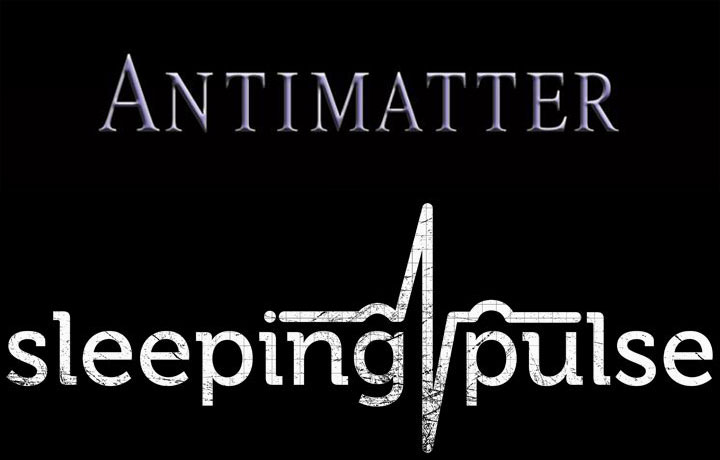
You can support Terra Relicta by donating! Please, do so, and thank you!

Interview with: Mick Moss
Conducted by: T.V.
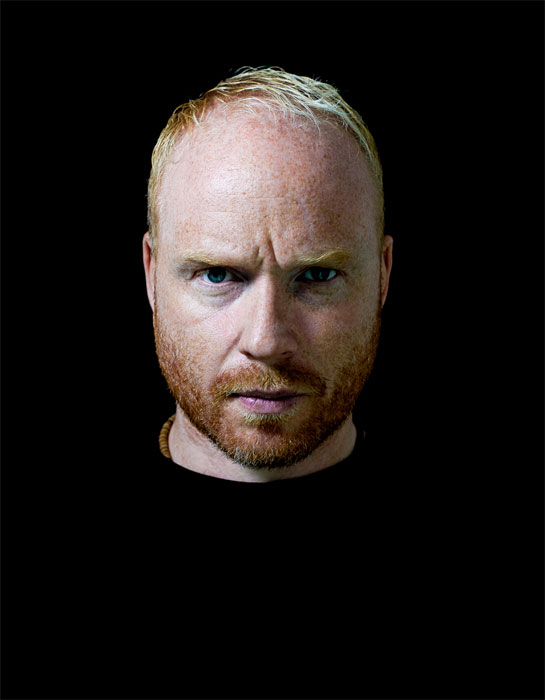 Mick Moss, a name that doesn't need a lot of introduction, as the man behind Antimatter is certainly one of the masters of atmospheric, melancholic, dark and melodic rock. The English singer/songwriter Mick started his musical career in early 90s, but it was not until he joined Duncan Patterson (then of Anathema) as a second half of Antimatter back in 1998, that made him noted as one of the most comprehensive and reliable composers able to make the most heartrending melacholic, yet often melodic songs. After Duncan left Antimatter in 2005, right after the release of the third full-lenght, Planetary Confinement, Antimatter became Mick Moss' own thing, and the very next album, 2007's Leaving Eden is considered by many as one of the most refined works of the genre. It was followed in 2012 by another masterpiece named Fear Of A Unique Identity. Then he together with Luis Fazendeiro (guitar player and songwriter of Portuguese atmospheric metal band Painted Black) formed Sleeping Pulse and last year released the stunning debut album Under The Same Sky (read a review over HERE), which once again goes beyond limits of everything tinged as atmospheric and melancholic in rock music. And that's not all, there's already in the making the next album of Antimatter, also Sleeping Pulse won't stop just with one album, Mick as well joined as a guest the new project of Juha Raivio (Swallow The Sun) and Sweden based singer Aleah, Trees Of Eternity, on their upcoming debut album. More interesting things about Mick Moss and his bands, projects, past endeavours, future plans, experiences, personal life and much more in the interview which was kindly answered by Mick.
Mick Moss, a name that doesn't need a lot of introduction, as the man behind Antimatter is certainly one of the masters of atmospheric, melancholic, dark and melodic rock. The English singer/songwriter Mick started his musical career in early 90s, but it was not until he joined Duncan Patterson (then of Anathema) as a second half of Antimatter back in 1998, that made him noted as one of the most comprehensive and reliable composers able to make the most heartrending melacholic, yet often melodic songs. After Duncan left Antimatter in 2005, right after the release of the third full-lenght, Planetary Confinement, Antimatter became Mick Moss' own thing, and the very next album, 2007's Leaving Eden is considered by many as one of the most refined works of the genre. It was followed in 2012 by another masterpiece named Fear Of A Unique Identity. Then he together with Luis Fazendeiro (guitar player and songwriter of Portuguese atmospheric metal band Painted Black) formed Sleeping Pulse and last year released the stunning debut album Under The Same Sky (read a review over HERE), which once again goes beyond limits of everything tinged as atmospheric and melancholic in rock music. And that's not all, there's already in the making the next album of Antimatter, also Sleeping Pulse won't stop just with one album, Mick as well joined as a guest the new project of Juha Raivio (Swallow The Sun) and Sweden based singer Aleah, Trees Of Eternity, on their upcoming debut album. More interesting things about Mick Moss and his bands, projects, past endeavours, future plans, experiences, personal life and much more in the interview which was kindly answered by Mick.
T.V.: Hi Mick! It's really difficult to start an interview with you because there are so many questions that I could ask you, but... Ok, the last thing that you were involved into is Sleeping Pulse and you've released the first album a couple of months ago. So, please tell me how are you satisfied with it and how it was working together with Luis Fazendeiro?
Mick: The feedback for the album has been overwhelming; people seem to be very, very happy with it. We are too. To me it feels like the perfect debut album, and in some ways it does actually feel like my first album, which is a very strange sensation considering it’s actually my sixth. 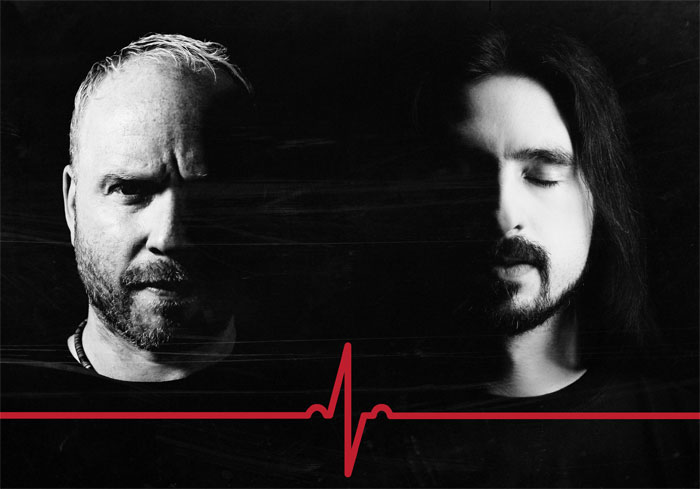 T.V.: We all know that the modern technology allows to musicians recording albums even if they are at two separate places, but it often intrigues me and I'm interested how was this process going on in the case of Sleeping Pulse?
T.V.: We all know that the modern technology allows to musicians recording albums even if they are at two separate places, but it often intrigues me and I'm interested how was this process going on in the case of Sleeping Pulse?
Mick: Luis constructed his full pieces in instrumental form and then sent them to me, where upon I set about working lyrics, vocal lines and arrangements into his tracks to turn them into songs. It was actually a very rewarding experience for me. I had always been curious as to what it would be like to just be a vocalist, and to work exclusively within those parameters, and I loved it. I could focus on that job along and really refine what I was doing to the point where I turned in what I consider to be some of my strongest vocal and lyrical work to date.
T.V.: And how was with the media feedback and how much of an importance do you give to reviews and other ratings of your works?
Mick: The feedback has been overwhelming; we have seen nothing but extremely positive reviews. Whatever you do it is going to get reviewed, so I have learned to not worry about the press, though I must say that throughout career they have been very kind to me.
T.V.: Can you share with us some words about how Sleeping Pulse was born? Who was the actual former of this project, Luis or you?
Mick: I stayed at Luis’ place in 2008 after an Antimatter gig in his hometown of Lisbon, and the conversation turned to the demos he was working on at the time. He played me a few pieces, all instrumental tracks, and I liked the vibe I was getting from them. I suggested to him there and then that I could craft songs out of those instrumentals, and the idea for Sleeping Pulse was planted rather quickly. So, the idea for us to 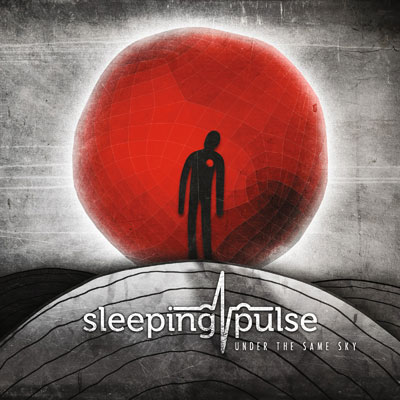 work together was mine, though I must state that Luis had already written the instrumental music of Sleeping Pulse by the time I suggested that we could work together and I could write vocal lines and lyrics over the top of his already existing work. I don’t want Luis to go through what I went through in the early days of Antimatter, where for the first five years the partnership I was in was frequently passed off as Duncans sole project (although the debut album featured 5 out of 9 songs written by myself, and a third of that album I had constructed two years before Antimatter even existed), and in some quarters I was basically purged from my own history as it evolved, the fallout of which still happens to this day. Anyway, I digress. Because of my own experience I am very careful to point out exactly how things started, and the fact that there are two people in any partnership, not just one. I have made sure that in all press releases, interviews, everything, Sleeping Pulse is represented as ‘Mick Moss and Luis Fazendeiro’. I don’t want Luis to go through what I did all those years ago. A partnership is a partnership.
work together was mine, though I must state that Luis had already written the instrumental music of Sleeping Pulse by the time I suggested that we could work together and I could write vocal lines and lyrics over the top of his already existing work. I don’t want Luis to go through what I went through in the early days of Antimatter, where for the first five years the partnership I was in was frequently passed off as Duncans sole project (although the debut album featured 5 out of 9 songs written by myself, and a third of that album I had constructed two years before Antimatter even existed), and in some quarters I was basically purged from my own history as it evolved, the fallout of which still happens to this day. Anyway, I digress. Because of my own experience I am very careful to point out exactly how things started, and the fact that there are two people in any partnership, not just one. I have made sure that in all press releases, interviews, everything, Sleeping Pulse is represented as ‘Mick Moss and Luis Fazendeiro’. I don’t want Luis to go through what I did all those years ago. A partnership is a partnership.
T.V.: Was there because of that any bad feelings between Duncan and you? How's the relation between you two these days?
Mick: No, absolutely not. What I’m referring to here is a time 15 years ago, and a lot has happened since then. Back then Duncan made it clear in interviews that Antimatter was two people, I don’t hold any bad feelings for him. What I’m referring to is how aware I am of the mechanisms of promoters, advertisers and how they will use whatever they can to sell a product, and also how bloggers and bedroom reviewers tend to just write their own versions of the truth on the internet without having really done any research. For the most part, and within these boundaries, Antimatter, the result of my life’s work, was rebranded in the early days as Duncans work, which was incredibly frustrating at the time. It wasn’t until our third album, Planetary Confinement, in 2005 where people were basically forced to admit that I wrote half of the material as I recorded my session in a separate studio to Duncan and they had to acknowledge this in whatever they were writing. In the long run I’m just making sure that Luis doesn’t fall victim to it as I’m coming from a point of empathy here having been in the same position as him back in the day. At the time of the 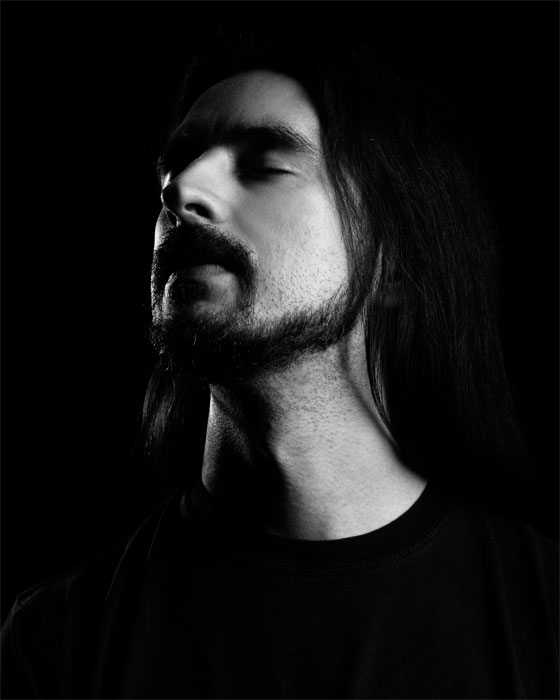 release of the Sleeping Pulse debut I’m much further on in my career than Duncan was at the time of the release of the Antimatter debut, so people could easily just focus on me now and I don’t want people to just concentrate on the "Antimatter guy" like they did with the "Anathema guy" totally at the expense of his lesser-known partner.
release of the Sleeping Pulse debut I’m much further on in my career than Duncan was at the time of the release of the Antimatter debut, so people could easily just focus on me now and I don’t want people to just concentrate on the "Antimatter guy" like they did with the "Anathema guy" totally at the expense of his lesser-known partner.
T.V.: I perfectly understand you and that could be often a problem. But let's proceed with Sleeping Pulse. In many ways the music on Under The Same Sky reminds to Antimatter's Leaving Eden album, at least I find the mood of both albums very similar... Any comments?
Mick: There are some similarities in there, also in the arrangement of some tracks like "Backfire" or "The Blind Lead The Blind", but there aren’t harder tracks like "Gagging Order" or "Noose" or even "Parasite" on Leaving Eden. It’s very easy to draw comparisons to Antimatter though due to my voice being there, that was always going to happen.
T.V.: The title Under The Same Sky must have kind of a deeper meaning and I'm curious if there's any special message behind the lyrics of the songs?
Mick: I took this opportunity to exorcise some bad energy over a particularly sociopathic girl from my past who targeted me due to my success in Antimatter with a view to me launching her own music career by convincing me we were "best friends" and "soulmates". All of my true friends and family were screaming at me: "You’re being used!", but I just couldn’t see it. By the time I had realised what was happening it was too late, she had took a lot of money from me and ran away with a lot of stock and royalties from my record company and sold it off as fast and as cheaply as she could right in front of my face even though I had formally requested it be returned to me. As it transpires she had hooked up with someone she thought could help her better. The irony was that this guy was a novice at best who was a bullshitter himself. His inexperience, stupidity and bad ideas helped her to the destruction, all within a matter of weeks, of her own reputation in this scene that she sucked so hard to gain favour in.  Poetic justice. Since then I have seen her try the same thing on with my friends, who, surprise surprise, also are in the music industry. But they all know better. Now she is off in search of other marks. I lost a lot of money and also a lot of faith and trust in people, but I’m trying to rebuild things at the moment. On a positive note I could have lost a lot more, plus I’m much smarter now about how manipulative people can be. You live, you learn. And I’m here to warn people about that kind of behaviour. Soon afterwards I started researching the psychology of the sociopath, its fascinating stuff, and also quite scary how these people exist and operate, all independently of each other, yet all displaying the same characteristics. Sociology is fascinating. The title Under The Same Sky refers to the modus operandi of the sociopath, as they have figured out sometime in their lives that it is simply easier to extract things from people who feel a kinship with them, so they work hard on creating this kinship, this feeling of trust. How sick is that. Think hard. Do you know someone like that in your life who has everything to gain from a friendship with you? Be aware.
Poetic justice. Since then I have seen her try the same thing on with my friends, who, surprise surprise, also are in the music industry. But they all know better. Now she is off in search of other marks. I lost a lot of money and also a lot of faith and trust in people, but I’m trying to rebuild things at the moment. On a positive note I could have lost a lot more, plus I’m much smarter now about how manipulative people can be. You live, you learn. And I’m here to warn people about that kind of behaviour. Soon afterwards I started researching the psychology of the sociopath, its fascinating stuff, and also quite scary how these people exist and operate, all independently of each other, yet all displaying the same characteristics. Sociology is fascinating. The title Under The Same Sky refers to the modus operandi of the sociopath, as they have figured out sometime in their lives that it is simply easier to extract things from people who feel a kinship with them, so they work hard on creating this kinship, this feeling of trust. How sick is that. Think hard. Do you know someone like that in your life who has everything to gain from a friendship with you? Be aware.
T.V.: Huh, that must be one hell of an experience, still I think that there's a lot of people like this girl from your situation out there. Don't you think that so many people who gained high statuses in the world are kind of a sociopaths?
Mick: I think sociopaths exist on every level, and not all sociopaths are high achievers as they’re not all super calculating evil geniuses. In their head they are maybe, but the human race isn’t stupid… people will always eventually work out when somebody is trying to pull the wool over their eyes and that’s why typically sociopaths have to run from one group of people to another to another, as they keep on getting figured out and having to flee the scene of the crime to find other people who haven’t figured them out yet. Just because they’re manipulative, narcissistic, and without empathy or ethics doesn’t automatically make them clever or high achievers, though I would say that I have observed over the years that people in high status, or even people in low status jobs who consider themselves high status, will begin to display sociopathic tendencies that weren’t necessarily there to begin with.
T.V.: Your lyrics and all the music are often very deep, melancholic and thoughtful. What's the main point of inspiration for you?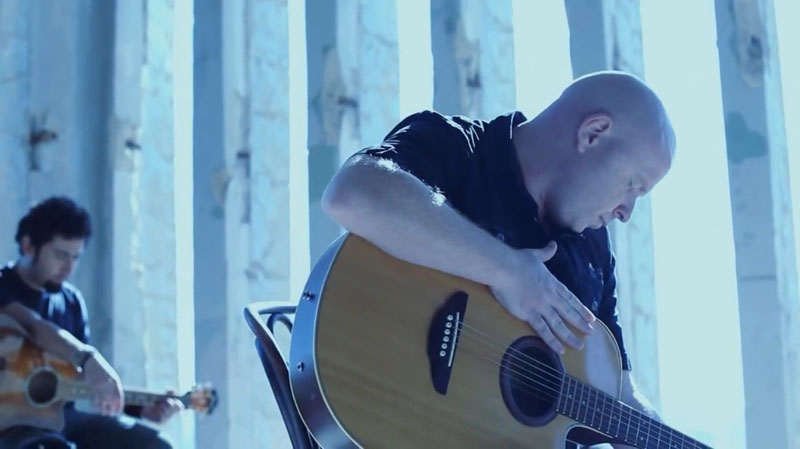 Mick: When I hit my late teens something inside of me woke up, and I started to think far too much for my own good. For many years afterwards I felt like I was going insane with all the theories I had going around my head. Mainly I would question and dissect society, psychology and my own existence to a point where I was sure I was going to burst, naturally I even questioned the sanity of these thoughts and the conclusions I came to, as well as the sanity of the people around me and the way they behaved. Over the years I have learned to distil these thoughts into rhyme and use them in a positive way, to empty my head of some of the chaos and to give some insight to other people who may think the same way, or suffer the same problems. As I now read a lot of sociology I have learned that a lot of the thoughts I had about human behaviour are actually correct and that I'm actually quite sane, I guess I just think too much, but at least within that I’m on the right track. At any one time there is the potential for many, many song concepts, and as I say it’s just a question of taking those trains of thought and refining them into a conclusive pattern of verse. I’m quite lucky in that way as I guess I will never be barren of lyrics.
Mick: When I hit my late teens something inside of me woke up, and I started to think far too much for my own good. For many years afterwards I felt like I was going insane with all the theories I had going around my head. Mainly I would question and dissect society, psychology and my own existence to a point where I was sure I was going to burst, naturally I even questioned the sanity of these thoughts and the conclusions I came to, as well as the sanity of the people around me and the way they behaved. Over the years I have learned to distil these thoughts into rhyme and use them in a positive way, to empty my head of some of the chaos and to give some insight to other people who may think the same way, or suffer the same problems. As I now read a lot of sociology I have learned that a lot of the thoughts I had about human behaviour are actually correct and that I'm actually quite sane, I guess I just think too much, but at least within that I’m on the right track. At any one time there is the potential for many, many song concepts, and as I say it’s just a question of taking those trains of thought and refining them into a conclusive pattern of verse. I’m quite lucky in that way as I guess I will never be barren of lyrics.
T.V.: Yeah, that's for sure, human nature and society should be a neverending fountain of inspiration. For the track "War" you even released a very interesting video clip. How it was shooting that one and are there any plans to shoot a video for any other track from the album?
Mick: It was a great experience shooting that video. We went out to a deserted mansion in Portugal and made some great use of the rooms and location there, and we had the very strong team of Mara D'Elean and Daniel Duarte, too. Once again it was rewarding to see my script come to life. I’ve always been into the medium of film and at one point I wasn’t sure if it was film or music I was going to get into. Thankfully being involved with music means that I also get to dabble in film every now and then.
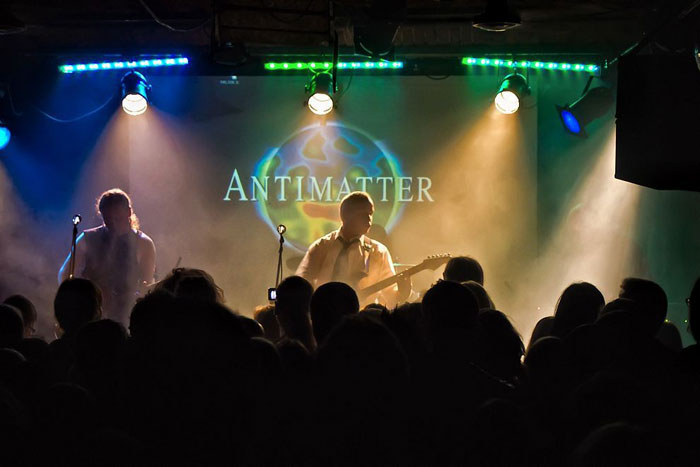 Celtic Frost's "Procreation Of The Wicked". We never did anything with it but it was an invaluable experience. Everybody could play their instruments and we were tight and rarely put a note out of place. Not bad for a gang of 15 year old kids. After that was a kind of stoner thing called Machiavellian, based around instrumental jams. We managed to scrape two pieces together before falling apart. Then came The Chong, which was again all about instrumental pieces. I was 17 by this time and as usual things fell apart before too long. Looking back now, it’s interesting to note that the drummer for all three of these bands was Chris Phillips, who I would contact later on to play on Planetary Confinement and Leaving Eden. In 1995, on my 20th birthday, I bought an electric guitar, a drum machine and a 4-track tape recorder, and essentially established my solo project. I set about just writing and playing everything myself, that way nobody could leave the project causing me to have to start from zero ever again. This was the start of my catalogue of songs that eventually led to Duncan suggesting we work together three years later.
Celtic Frost's "Procreation Of The Wicked". We never did anything with it but it was an invaluable experience. Everybody could play their instruments and we were tight and rarely put a note out of place. Not bad for a gang of 15 year old kids. After that was a kind of stoner thing called Machiavellian, based around instrumental jams. We managed to scrape two pieces together before falling apart. Then came The Chong, which was again all about instrumental pieces. I was 17 by this time and as usual things fell apart before too long. Looking back now, it’s interesting to note that the drummer for all three of these bands was Chris Phillips, who I would contact later on to play on Planetary Confinement and Leaving Eden. In 1995, on my 20th birthday, I bought an electric guitar, a drum machine and a 4-track tape recorder, and essentially established my solo project. I set about just writing and playing everything myself, that way nobody could leave the project causing me to have to start from zero ever again. This was the start of my catalogue of songs that eventually led to Duncan suggesting we work together three years later. 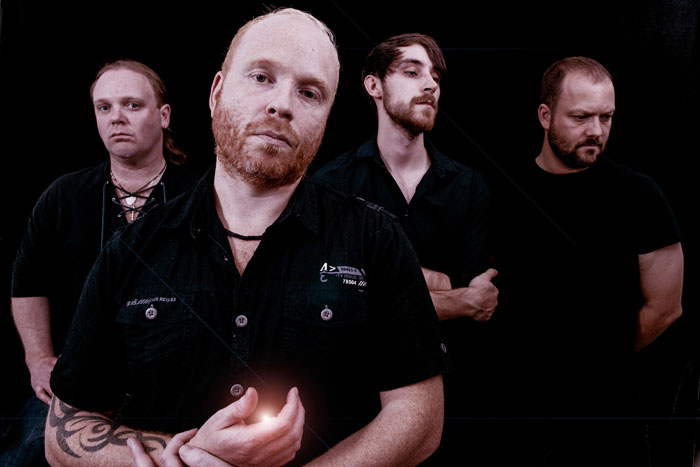 Mick: That was a strange period for me. I just got my head down and worked on the album and I certainly didn’t expect the reception it got. It’s true, I also see Leaving Eden as the breakthrough album and I’ve seen many people’s opinions that affirm that. Leaving Eden was the critical breakthrough for Antimatter, though Fear Of A Unique Identity was the commercial breakthrough, being the fastest selling Antimatter album to date. This is to take nothing away from Duncan, I guess it's simply because the last two albums I made have been the work of one person alone, one vision, and therefore more coherent than the first three albums which always seemed to have a kind of schizophrenia to me.
Mick: That was a strange period for me. I just got my head down and worked on the album and I certainly didn’t expect the reception it got. It’s true, I also see Leaving Eden as the breakthrough album and I’ve seen many people’s opinions that affirm that. Leaving Eden was the critical breakthrough for Antimatter, though Fear Of A Unique Identity was the commercial breakthrough, being the fastest selling Antimatter album to date. This is to take nothing away from Duncan, I guess it's simply because the last two albums I made have been the work of one person alone, one vision, and therefore more coherent than the first three albums which always seemed to have a kind of schizophrenia to me. 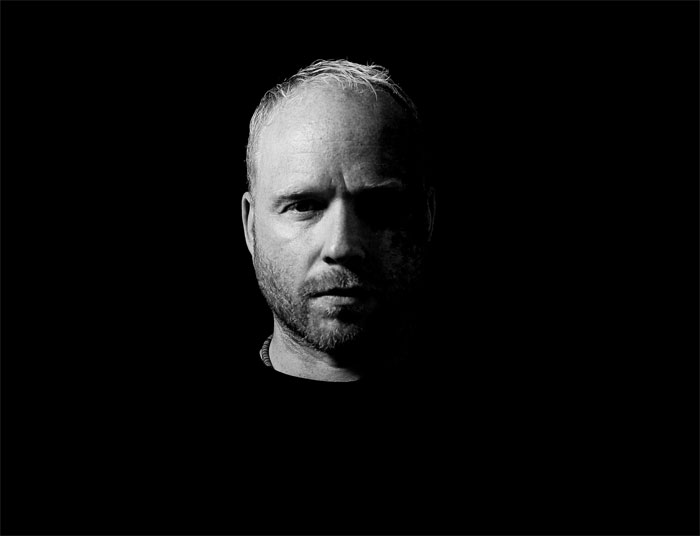 Mick: I’m putting together the demos/pre-production to the next Antimatter album right now. I’m about halfway through the process, so at the moment I’m hearing the songs slowly reveal themselves. The Judas Table will be the 6th original Antimatter studio release (not counting Alternative Matter or the recent "Too Late" single). Once again there are some changes to the overall range of sounds. Some songs I can easily draw a line back to earlier Antimatter albums, whereas others feel new to the picture, widening the spectrum of what Antimatter’s sound is. So it’s a healthy mix.
Mick: I’m putting together the demos/pre-production to the next Antimatter album right now. I’m about halfway through the process, so at the moment I’m hearing the songs slowly reveal themselves. The Judas Table will be the 6th original Antimatter studio release (not counting Alternative Matter or the recent "Too Late" single). Once again there are some changes to the overall range of sounds. Some songs I can easily draw a line back to earlier Antimatter albums, whereas others feel new to the picture, widening the spectrum of what Antimatter’s sound is. So it’s a healthy mix. 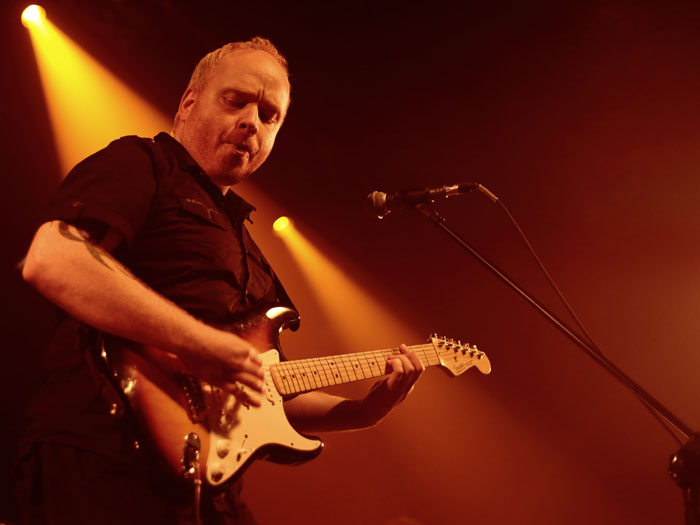 from myself of course, and this is a really great way to work. I should have done this years ago but I was always too much of a control freak. Once the demos are all done I plan to then work with a couple of lead guitarists and maybe also a couple of vocalists for harmonies, The plan is not to have a fixed person for those jobs, but in fact a string of guests.
from myself of course, and this is a really great way to work. I should have done this years ago but I was always too much of a control freak. Once the demos are all done I plan to then work with a couple of lead guitarists and maybe also a couple of vocalists for harmonies, The plan is not to have a fixed person for those jobs, but in fact a string of guests. 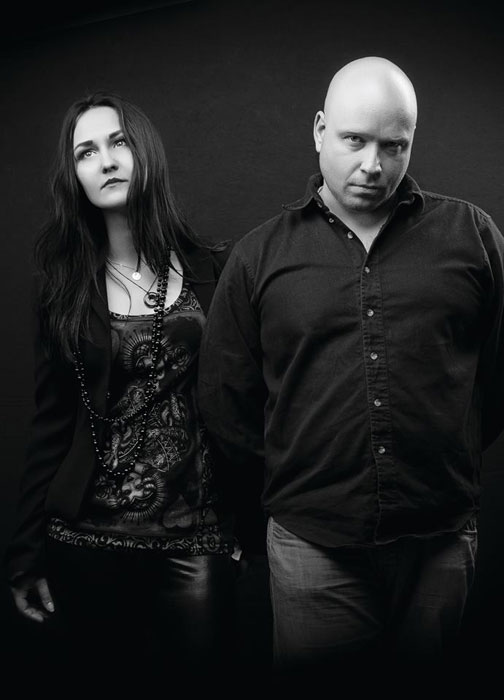 lads who were into the Britpop scene, they all heard my baritone voice and accused me of ripping off Paul Weller. A few months later I played my songs to a guy who was actually in a boyband at the time, and he was shocked at how much I ‘tried to sound like Ronan Keating’ (Boyzone, an Irish pop band). Then with the release of the first Antimatter album some months later, I was immediately compared to Eddie Vedder. This highlights how people immediately reference the baritone/vibrato voice to whatever baritone/vibrato voice they are the most familiar with, which is usually directly linked to what genre of music they listen to. Though like I said, all three were wrong. As a vocalist I have grown and matured over the years, and many layers have been added to my performance, layers drawn from many different places both internal and external, and I’ve got to say at this age I’m mostly influenced by myself if that makes any sense.
lads who were into the Britpop scene, they all heard my baritone voice and accused me of ripping off Paul Weller. A few months later I played my songs to a guy who was actually in a boyband at the time, and he was shocked at how much I ‘tried to sound like Ronan Keating’ (Boyzone, an Irish pop band). Then with the release of the first Antimatter album some months later, I was immediately compared to Eddie Vedder. This highlights how people immediately reference the baritone/vibrato voice to whatever baritone/vibrato voice they are the most familiar with, which is usually directly linked to what genre of music they listen to. Though like I said, all three were wrong. As a vocalist I have grown and matured over the years, and many layers have been added to my performance, layers drawn from many different places both internal and external, and I’ve got to say at this age I’m mostly influenced by myself if that makes any sense. 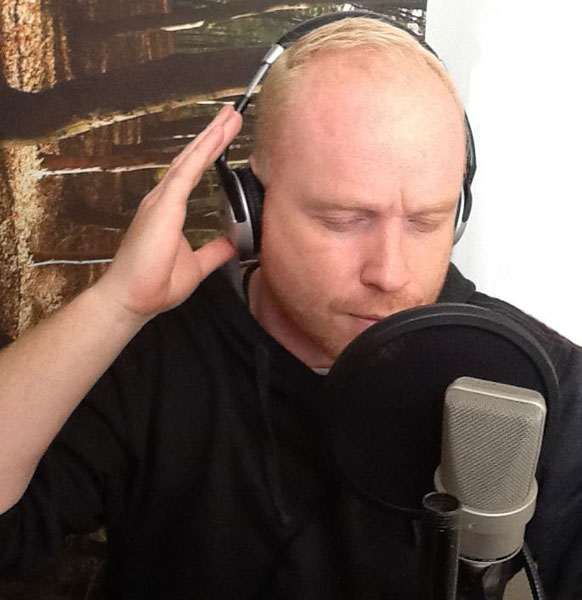 T.V.: You played in and visited so many countries until now, but is there a place that you still wish to visit more than any other?
T.V.: You played in and visited so many countries until now, but is there a place that you still wish to visit more than any other?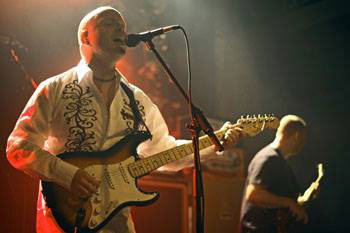 the recent musical releases of the older generations. Of the few acts I listen to who were formed after 1995, off the top of my head I can think of Kosheen and The Pierces, and I certainly don’t listen to any modern rock/metal music.
the recent musical releases of the older generations. Of the few acts I listen to who were formed after 1995, off the top of my head I can think of Kosheen and The Pierces, and I certainly don’t listen to any modern rock/metal music. Sleeping Pulse links: Official website, Facebook
Antimatter links: Official website, Facebook